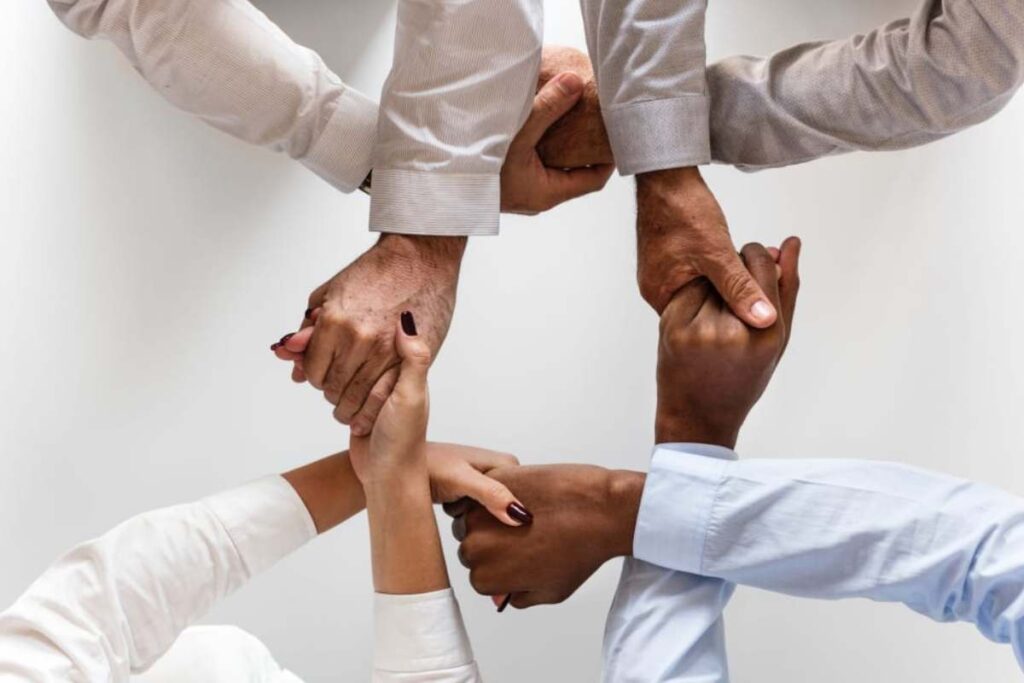Building Connections is more important than ever in an increasingly interconnected world. Whether it’s personal relationships, professional connections, or community involvement, the ability to connect with others profoundly impacts our success, happiness, and well-being. But what does connecting the collected link involve, and how can we effectively cultivate it? This article explores the art and generation behind developing and maintaining meaningful relationships.
The Importance of Building Connections
Humans are social creatures. From the moment we are born, we seek connections with others. These relationships provide us with emotional support, the comfort of belonging, and the opportunity for informal and professional development. Research has confirmed that people with strong social connections tend to live longer, healthier lives and report higher levels of happiness and satisfaction.
Connectivity is no less important in the executive suite. It can bring active collaboration, increased creativity, greater interest, and happiness. Strong professional connections open doors to new opportunities, provide valuable insights and advice and act as a lifeline in difficult times.
Understanding the Foundations of Connection
Link building is both an art and a generation. It requires emotional intelligence, empathy, communication skills, and social skills. Here are some key ideas to keep in mind:
Masonry Estimate
Authenticity is the underpinning of any meaningful relationship. People are attracted to people who are realistic and honest. When we are authentic, we allow others to see our true selves, which fosters mutual respect and self-awareness. To be genuine, accepting yourself, understanding your values, and voicing your thoughts and feelings are essential.
Empathy
Empathy, the aptitude to sense and share the feelings of others, is critical to building connections. It allows us to see issues from another person’s perspective and respond compassionately.[1] Practicing active listening, identifying conversations, and showing genuine interest in other people’s assessments are ways to calm emotions.
Communication
Effective communication is the link that connects us to others. It involves expressing our true thoughts and feelings and actively listening and responding because we are supposed to. Good communicators are aware of their verbal and nonverbal cues, which include body language, tone of voice, and facial expressions.
Mutual Respect
Respecting the criticism, boundaries, and individuality of others is essential to building healthy relationships. Mutual love creates a consistent and supportive environment where people feel valued and understood. It is vital to recognize and understand the kinds of ideas and memories that others bring.
Practical Strategies for Building Connections
Networking takes dedicated effort and practice. Here are some practical tips to help you effectively connect with others:
Building Connects Pricing
Drawing inspiration from other people’s lives, learning, and perspectives is a powerful way to benefit and build connections. Ask open-ended questions, listen carefully, and remember the details of their testimony. Showing you care about what they say will make you feel acknowledged and appreciated.
Be Present
Being honestly noticed in a conversation can be difficult in this fast-paced world. However, giving someone your undivided attention is a precious gift. Eliminate distractions, maintain eye contact, and actively participate in the verbal exchange. Your presence shows that you care about the man or woman and are sharing.
Offer Support
Being there for others in all problematic situations strengthens bonds and builds trust. Offer a helping hand, lend an ear, or offer encouragement while someone sleeps. Small acts of kindness and help should go a long way in strengthening your relationships.
Share Experiences
Sharing creates lasting memories and deepens connections. Whether participating in an event, sharing activities, or simply spending quality time together, these moments build a sense of camaraderie and belonging.
Practice Gratitude
Expressing gratitude is an effective way to strengthen relationships. Recognize and appreciate the contributions, guidance, and presence of others in your existence. A simple thank you for attention, a hug, or a gesture of appreciation can go a long way in improving your relationships.
Overcoming Barriers to Connection
Despite our best efforts, networking can be difficult at times. Here are some common limitations and strategies for success:
Connects building
Fear of rejection is an innate human experience that can prevent us from working on constructive connections with others. To overcome this anxiety, it’s important to believe in yourself and recognize that rejection does not reflect your worth. Focus on the positive aspects of making new connections and persevere in facing failure.
Cultural Differences
Cultural differences can lead to misunderstandings and limit communication. Interacting with those who are different is fun and open. Learn about fascinating cultures, ask questions, and respect the customs and traditions of others.
Lack of Time
Finding time to build and maintain relationships can be challenging in our busy lives. Prioritize your relationships with resources to schedule daily activities, set reminders for important dates, and make the most of small opportunities to connect.
Conclusion
Building meaningful Connections is a lifelong adventure that requires effort, persistence, and intention. We will create and nurture relationships that enhance our lives by embracing authenticity, empathy, powerful verbal exchanges, and ambivalence. In any non-governmental or professional setting, working to connect with others is a powerful tool that enhances our well-being and success. As we strive to make sense of a complex, interconnected world, let us reflect on the value of human connections and seek to build bridges that bring us closer together.

